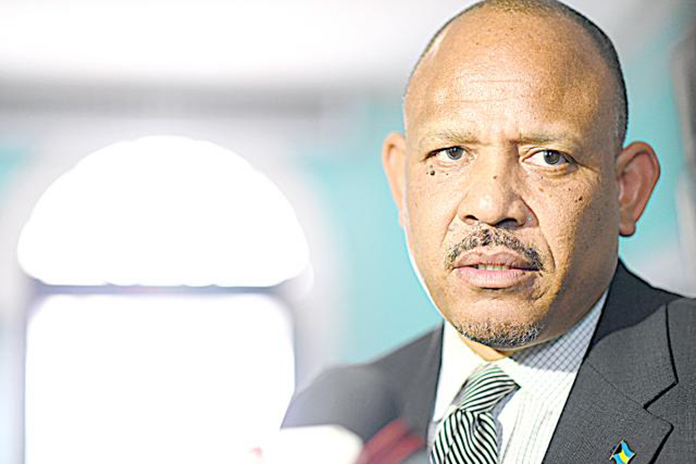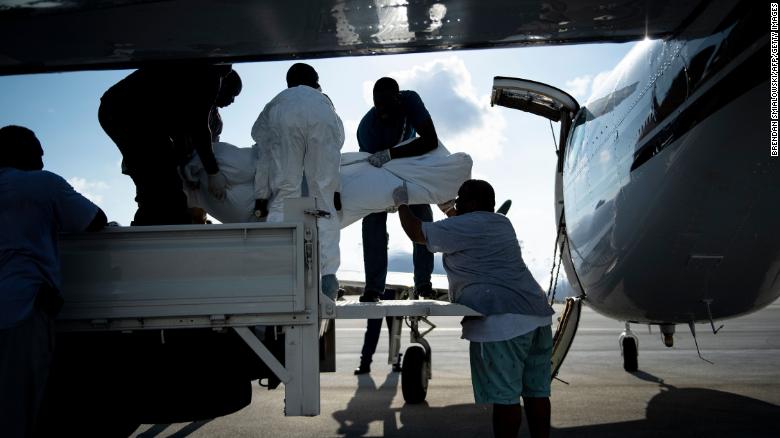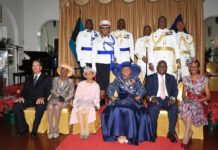Duane Sands tell how Minnis Government Abandoned the missing and the dead in the aftermath of Hurricane Dorian – He called for an inquest into the matter…

Duane SANDS CONTRIBUTION: In the first week of September 2019, the world changed. On September 1, 2019 hurricane Dorian began its path of destruction across the northern Bahamas We experienced hell on earth particularly in Abaco and Grand Bahama.
The residents of those islands continue to live the aftermath of Dorian daily. We all recognized that recovery would not happen quickly. Few
were prepared for the actual slow road back to even a semblance of normalcy.
We did not handle the identification of those who lost their lives or those still missing well. Deceased bodies…
The official death toll post Dorian stands at 74.
The actual death toll and reconciliation of missing persons remains unknown.
Many families continue to grieve not only for the loss of loved ones but for the uncertainty of what became of their remains.
While the majority of Bahamians have returned to their ordinary lives following the storm, many from Grand Bahama and especially from Abaco continue in states of suspended animation. We must empathize with them, as some have had their lives shattered.
As of today, we do not know …collectively… who is lost, missing, or missing and presumed dead.
I fear that we have not sufficiently elevated this matter as a national priority.
There was too little focused attention and management of the issue of missing and deceased persons. Responsibility was spread over multiple ministries and government agencies. It was believed that this would ensure greater clarity. In action, it proved to be a recipe for disaster.
For us to close this chapter…before another is opened… we are now almost two weeks into hurricane season… let us look objectively and
honestly at our approach to missing persons and deceased persons.
Let us dissect the process used to arrive at the official count of 33 –even as many more families mourn missing persons.
We started with a list of several thousand persons missing. That list was managed by the Ministry of Social Services. We ended with a missing persons list controlled by the RBPF that included less names than the number of unidentified persons buried.
To this day…we do not know what happened that caused thousands or hundreds of names to be excluded from the official list.
There may be reasonable, justifiable reasons for pruning the list.
But those reasons and process have not been shared and explained to the public. Because of that process, we have raised many questions and squandered credibility.
People want to know why we have no DNA matches for those persons recently buried.
The public deserves to know how many samples were taken… how many times have those samples been tested…by whom?
Why is there no publicly accessible listing or database of missing persons? What are the names of the people lost…the mothers’ fathers
and children!
If we are to get closure as a country…we must accept the loss, outline the process used, admit our missteps and operationalize systems to do better.
Perhaps this is simply because we continue to exist in an environment where information is not shared with the public…freely, openly and
frequently.
Never waste a crisis.
Now we must demonstrate why we are transparent and open to scrutiny and criticism.
Dorian has taught us that while we all suffer- the most vulnerable, the least powerful, the least connected…suffer the most. That suffering is deep, scarring and goes beyond the bone to the soul.
In the Bahamas, our population of undocumented migrants have paid a premium with possessions lost, lives of loved ones lost, and we have not consistently assured that they were afforded safe spaces to interact with government agencies.
DEAD LEFT BEHIND BY MINNIS GOVERNMENT FORMER MINISTER CONFIRMS!








